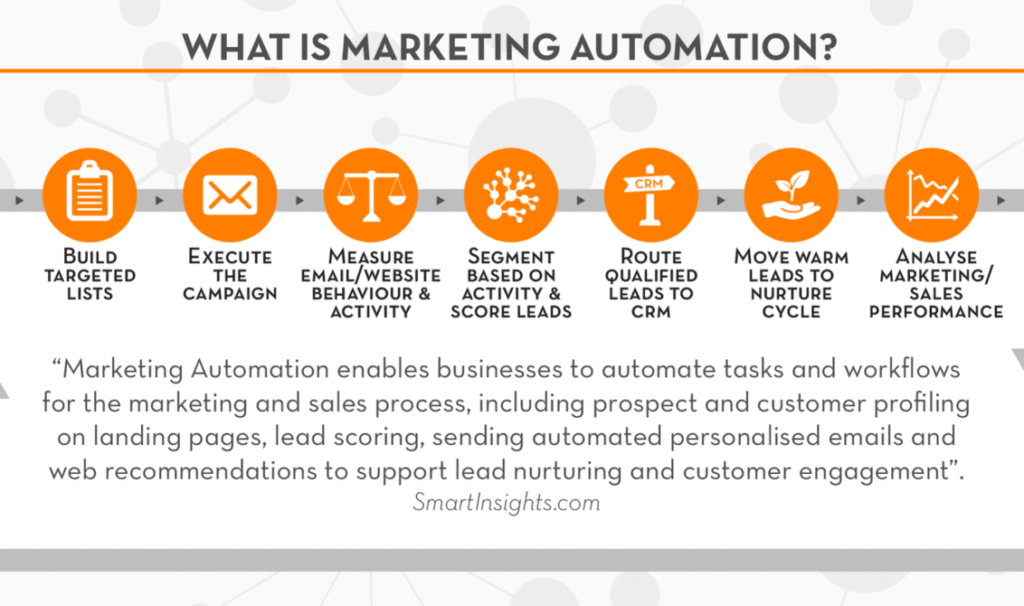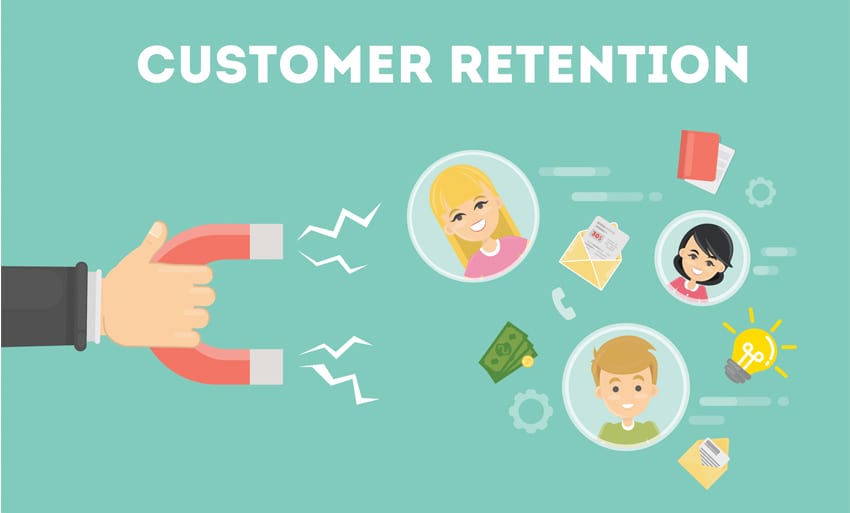The concept of customer value corresponds to a significant shift in sales analysis, moving away from the traditional “how many sales” indicator for a more method-oriented approach “how were these sales made”. More than the result, it allows you to look into the process of “doing business”.
Yet, while its understanding is simple (much simpler than data mining technologies), it is much more complex to build and implement.
The first pitfall is related to the difficulty of being able to attach the different elements of income to the customer. Companies have put in place very sharp logic for measuring “value or profitability of products” … but it is often difficult or impossible to identify the customer (or a segment in sales). It is customary to simply sum up the customer’s turnover and determine an “averaged” margin without integrating the price actually paid by the customer.
The second pitfall is related to the difficulty of tracking over time, over the entire life cycle, the various costs that were necessary for its conversion and retention. Costs are tracked on a calendar or annual basis rarely logged in time … and almost never attached to a customer. In this context, it is common to have to allocate costs by dividing them by the number of customers … so to average a second time the approach.
The third pitfall is related to the uncertainty of the calculated value, either because of the inaccuracy of the data collected on the client (if the client has several suppliers?), As on the foreseeable changes in his behavior over time. The modes of taking into account the present value and the future value can lead to preferring the logic of the short-term “one of you is better than two you will have it! “.
The analysis of these 3 pitfalls largely explains the lack of operational maturity of the concept: difficult to collect data … and production of a very uncertain model. An approach where many efforts can lead to poor results … a height for value: this concept of value does not create!
The goal of the blog on value is to provide methodological tips for its construction and use. The concept is central to the development of the customer relationship, the company makes certain expenses that depending on the behavior of the consumer turned out to be profitable or not. This is why it is necessary to determine the customer value.
Of course, generating a lead or getting a potential customer to validate your purchase is already a success for your company. Only a good customer in terms of business will only become so if it comes to increase what is called the customer value or customer lifetime value.
How to effectively increase this customer value? How can marketing automation impact this indicator in a sustainable way? These are the questions this article aims to answer.
Digitization has had a very strong impact on buying habits. She has not only touched B2C marketing but also B2B. The requirements of potential customers are now higher than a few years ago, both in terms of the product itself and how it is marketed. Simple information, although detailed, about the product in question is no longer sufficient. Today’s self-determined customer uses a multitude of communication and information channels and expects more and more relevant information from all these points of contact, beyond sales. Because the competition and their other products are often only one click away.
It means two things for your business, specifically for marketing and sales:
- You have to be able to send potential customers the right offers at the right time and in the right place if you want them to become quality leads and then real customers.
- Even after a bill of sale, a customer needs perfect information support with other relevant content, all in order for them to stay with the company for a long time. At the same time, it allows for the exploitation of additional commercial potential.
It is indeed wise to increase the value of each customer beyond its “lifetime”, also called customer lifetime value, in order to not only win customers continuously but especially to aim for an economic success. sustainable. Marketing automation can help you with this goal because it allows the automation of customer prospecting as well as its follow-up.
Marketing Automation: organizing the process efficiently

The term marketing automation can be defined as:
“The use of tactics and software allowing companies to offer a personalized online experience to attract and convert more leads into customers. “.
Businesses can also respond appropriately to customers’ changing buying habits, with marketing automation to take care of leads at the right time and with the right point of contact. Thus, investing in a software solution that is up to par is more than worthwhile
Increase customer value
However, marketing automation can be used much more than just propagating relevant content to win leads. Campaigns, as well as lead generation and tracking of long-standing customers, are more customization, including tracking playback behavior as well as clicks made integrated with marketing automation tools. It is more particularly by the sending of e-mails and newsletters that this follow-up is done: at the opening, by clicking on the contents or by downloading other contents, the profile of the leads or more particularly of the customer is assigned by the automation software. This gives direction to other actions and actions that can be used for personal preferences or needs.
With this technical-based customization, the relevance of each content is increased for each recipient and the success of marketing initiatives increases. It is possible to measure and evaluate this using a key performance indicator ( KPI ) of customer value. This index measures the value a customer places on a business throughout their life as a customer. The customer lifetime value includes previous sales with a customer as well as those that are coming in the future, following his shopping habits.
You can significantly increase each customer’s lifetime value through the strategic use of marketing automation measures: your customer receives content and offers designed for them, which include sales incentives (sales of higher quality products) and crossed (similar or complementary products) in order to maximize the turnover with this same customer. By increasing the customer value, you promote the economic growth of your company.
Example: How to evolve a simple customer into a regular customer
In order to increase customer loyalty in an efficient way, you need, from the beginning, precise support throughout the customer’s journey, which will give him or her appreciation and esteem for the customer. ‘business. The following example shows how to achieve customer loyalty with marketing automation software and increase customer value.
1. Moving from an interested party to a client
You are a software solution provider to create IT factors. On your website, you offer useful content, including an e-book titled “Electronic Accounting 5.0” and other practical checklists about compliance, software choice, and KPIs in the field. computer accounting.
This content is for free download as part of a double opt-in procedure, with legal certainty, in exchange for the data of interested persons. It generates leads in a satisfactory way and seeks to develop prospects. In fact, thanks to the marketing automation software that you use, you set up a lead nurturing campaign. Each lead receives individually relevant information via e-mail, that is to say, information useful for its own decision-making phase, and will be advised until the conclusion of the sale according to its needs. As a rule, a lead becomes a customer by purchasing a basic license limited to one year.
2. Even more automated intelligence towards customers
However, winning clients will become loyal customers only if they feel that the provider recognizes their individual needs and knows how to respond to them. The job of marketing is to demonstrate this to the customer via tailored campaigns. A marketing automation software is for that a great help. By integrating the software into the CRM system, marketing and sales always have an eye on all customers. Consulting data such as name, company, e-mail address, etc. as well as previous purchases and reactions to content marketing, such as the opening of newsletters, is possible.
It is based on all these criteria that target groups and customized campaigns are set up in just a few clicks. The understanding of the customer’s needs is based on the collected data and thus helps to play on the contents of the campaigns. Customer reactions to these marketing initiatives will affect the next steps.
3. Optimize the integration process
As a provider of computer billing software, you would like to focus on your new client who has just purchased a basic license for your software for one year. For this, the marketing department implements a “maturation” campaign by e-mail to develop the customer’s lifecycle. After the purchase of the temporary basic license, the customer automatically receives a welcome e-mail by which the service provider thanks him for his good choice. You also provide important information about using the software (how to contact customer service, the user forum link, etc.).
In order to best support new customers in their integration process, you send new e-mails with useful content in the coming weeks. Your customer reads in the second email a detailed explanation of the most important features of your software, including a link to the website with a video tutorial. You have been successful in familiarizing your customer is now familiar with your product. An upcoming e-mail will give him access to a list of complementary software or plug-ins for even more efficient use.
4. Incentive and cross-selling for customer loyalty

After some e-mails with more and more educational content that guides your new client towards a specific use of the software, thus promoting its satisfaction, it is time for your provider to probe the potential of sales incentives and cross. The marketing department designed the email campaign in such a way that the target group of new customers splits into two subgroups:
- Those who have reacted so far to the contents
- Those who are not.
For the last group, your sales team receives a message from the marketing team with the request to contact the customer personally to ask him if he is satisfied or if he needs any additional support.
Others, those who have read the newsletter e-mails and clicked on the links, are ready to qualify for the next steps. They will now receive emails to purchase the premium version. Such an e-mail will include, for example, a list of five good reasons to upgrade to the next version, as well as a direct link to the product page on the website. If the customer shows, by its read behavior and clicks made, that it is very interested in the full version, the automation software informs the sales department and gives the customer to finalize the transaction.
5. Reward loyalty, promote loyalty
It’s signed; the customer made a second purchase! This is the first important step towards a long customer lifecycle and Customer value. And why not reward his loyalty with exclusive emails reserved for those who have opted for a higher version? You consolidate his loyalty through these emails that highlight his status as a loyal and esteemed customer. The content may also consist of online quizzes relating to its satisfaction, additional offers such as free webinars on specific topics or invitations to client meetings or others.
At each key point of the customer journey, sending a targeted newsletter based on the group must be present, with content tailored to your sales objective. Thanks to the newsletters system aimed at the premium user group, you can filter the customers for whom the products in your range are interesting. You thus systematically exploit, via marketing automation software, incentive and targeted sales and maximize the customer value.
Success Factors for an Investment in an Automated Marketing Solution
As soon as you consider setting up automation software, you need to know that automated marketing is more than just a software system: it’s a digital strategy that has a major influence on everyone. the areas of the company. Expect that the marketing and sales departments will need to reconsider and align their way of working. 😉
In short, while everyone previously worked on their side (the marketing responsible for the website and the newsletter on the one hand and the sales department dealing with sales finalization on the other), the two will now work hand in hand. in order to achieve the defined sales objective. This interconnection of marketing and commercial services should be of interest to companies first and foremost before they think concretely about technological issues. In the first place, the procedures must be reconciled and only then can the research be started with a view to optimal technical realization.
If you have already considered this and you have already chosen your automation software, you still have to look at the subject of data protection. As of May 25, 2018, the General Data Protection Regulation (GDPR) came into force in Europe. It makes some changes to the old privacy policy, including stronger fines for any breach of data protection. RGPD compliance is therefore crucial when choosing your automation software.
Conclusion
In B2B, customer needs today to require greater precision for marketing and sales teams. No one wants to ruin their work time with inappropriate commercial e-mails. The customer’s appreciation, which is measurable by a strong customer value, is only won if you know how to segment your target groups in a clean and precise manner and that you know how to submit good offers to each point of the customer value journey, up to the conclusion of the sale.
A marketing automation software supports you and your company by combining marketing and sales approaches, bringing transparency between services and creating the conditions required to ensure that each customer’s support is consistent with their life cycle. full. The resulting revenue opportunities will be, in addition to being quantifiable, good for the development of the company.


